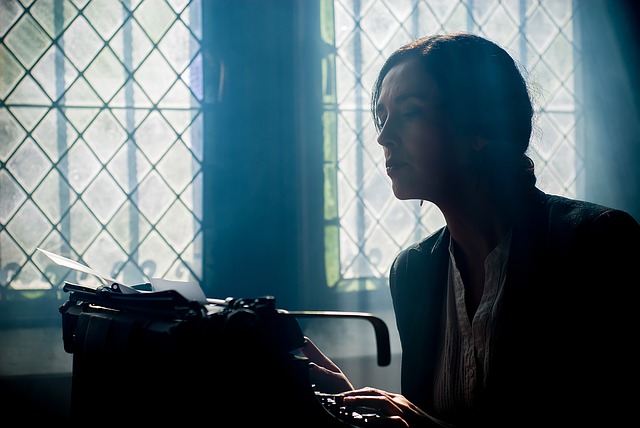
Script coverage, it’s been said, is one of those things about the film industry that nobody really learns about until they’re actually in the industry. Usually you’re introduced to script coverage at your first gig, or even internship, by way of your boss or higher-up handing you a script (or a PDF these days) and a Word document containing the script coverage template from the lucky person who wrote script coverage before you got there.
So, it’s fair to surmise that most people who write script coverage, or read scripts for a living, probably learned from reading the script coverage of their predecessor at a production company or studio or agency — each of which, by the way, has its own unique way of doing it.
Does the script coverage include a synopsis? How long of a synopsis? A critique section? If so, is it free-form, prose critique, or is it a series of boxes to check off and score, like “Plot,” “Character,” “Conflict,” etc.? Is there an analysis grid? Does it include a logline? Up top, does it indicate the writer’s name? The submission date? Does it indicate who submitted it?
While the templates and methodologies can be as different as the different entities doing the script coverage, one basic purpose is common to all script coverages:
Script coverage saves a producer, agent, or otherwise busy film industry “somebody” from having to read the actual script.
In other words, script coverage is a glorified “book report” of a screenplay or teleplay, designed to provide “the skinny” about a script, in order to save someone higher up from having to read the actual script.
In the past, generally pre-1996 or so, script coverage was an in-house thing only. That is, the only entities doing script coverage were agencies, production companies, studios, and producers. Script coverage was an internal document designed to stay internal, and not necessarily get back to the screenwriter whose script was covered.
But with the rise of the internet, script coverage became available as a tool for screenwriters and filmmakers, who could use to improve their screenplay. For a price.
Script readers were no longer only to be found in agencies and studios and production companies, or working with name talent. They were now taking their trade online, and exchanging their time and critical chops for money.
So now there’s a virtual cottage industry of script coverage companies spanning the internet, ranging from the good to the bad, from the expensive to the cheap, from professional work to hatchet jobs.
Traditionally, receiving script feedback on one’s own screenplay — feedback of any kind — has never been a super easy endeavor. Prior to paid script coverage services, a screenwriter would generally rely on her writer colleagues, writers group, mentors, or friends and family, to provide her with insight into her work.
But with the rise of the world wide web also came the rise of online meetups and writers groups and screenwriting forums. Now it’s more accessible than ever to find communities and like-minded folks to help you with your screenwriting. And standing shoulder-to-shoulder with all those methods and options, free and otherwise, is the service of paid script coverage.
Full disclosure: I’ve run the script coverage service Screenplay Readers since 1999. But while I’m a huge advocate of paid script feedback for my own writing, and am a huge fan of it because it’s my business, I have to make one thing super clear: I’m an even bigger advocate of getting as much free feedback on your work as possible before paying for any script coverage.
Paid script coverage isn’t for everybody, but here’s my take on the two biggest reasons it can help, and the two biggest reasons why it might not be right for you:
Biggest Benefit #1: It gives your script a “dry run” for the real submission process.
90 times out of 100, or even more frequently, if you’re sending in your script to an agency, producer, or production company, your script isn’t getting read. An immutable fact of the film business since time immemorial has been that everybody wants in. And I mean everybody. And everybody thinks they can write a script.
The result is studio and agency inboxes are crammed with spec scripts from unknown writers. Heck, many are crammed with spec scripts from known writers, both regularly employed and underemployed ones.
There’s just. Too. Many. Screenplays.
But for those lucky few who do get their scripts read, you, the screenwriter, will likely never read the script coverage that script readers writes about your script. So you’ll never know what criticisms that script reader had, and you’ll never have a chance to address them, or an opportunity to make those changes or fixes that could make the difference for a future script reader.
By paying for script coverage from a reputable screenplay coverage company, you get to read the coverage. You get to soak in all the criticism, good and bad, all the details, all the big-picture notes the script reader had, any and all concerns with the script finding an audience, you name it.
This sort of “dry run” is invaluable, as most screenplays are given only one chance to make a good impression on whoever may be reading it. An assistant or script reader, or even an agent or producer, isn’t going to read your script twice, unless you’re a name writer. And even then, a second read is a longshot. (In most of those cases, you’ll be lucky as a name writer to get even a second “skim.”)
Biggest Benefit #2: A person you don’t know synopsizes your script.
Nearly all script coverage includes a synopsis section, where the person reading the script boils down your story into a page or two, listing just the major beats and developments so that the person reading the script coverage later can get a good idea of what the actual story is.
As writers working alone, or even with a co-writer, we often get too close to our material. We start to see the trees, yes, but the forest can be elusive after staring at the page for two or three years. That is to say, while you’re on the third draft, hard at work on polishing the dialogue, you may have long ago stopped looking at the overarching story — and that story may need drastic attention. A complete stranger reading your screenplay and providing notes in the form a script coverage synopsis can a huge benefit for a writer because having that synopsis, in essence, brings back the “forest” — the “bird’s eye view.”
And the best part of that is that it doesn’t even matter if the script reader gets your synopsis “right.” That is, if they get all the beats of your story down pat, and the synopsis is spot on, you win because you know your material is clear and your story is coming across.
But even if they get it “wrong,” weirdly enough, you still win because you learn which parts of your script aren’t making themselves clear. A “wrong” synopsis beat gives you a chance to zoom in on that beat and make it clear. Better yet: make it idiotproof so that it’s unmissable to all but the most sloppy of readers.

Biggest Drawback #1: Expense.
There’s a key reason that aspiring screenwriters are the second most common film industry folks stepping off the bus and trying their hand at the grand ole Hollywood film industry. That key reason? Screenwriting is cheap — that is, the bars to entry, the expenses associated with giving it a try: they’re low. All you need is a laptop, some free screenwriting software, and some imagination. Don’t get me wrong: Talent is still vital, and skills take time and money and resources to hone, but the bare bones bar to entry for simply giving it a try is low.
Now compare that bar to entry for aspiring cinematographers and directors, where you kinda need to have a not-small pile of expensive gear, or a film or two under your belt. Because screenwriting is such a relatively inexpensive craft to try your hand at, it stands to reason that there are vastly more low-income aspiring screenwriters than there are middle/upper-income aspiring screenwriters.
So that means, for the majority of aspiring screenwriters, paying a script coverage company for feedback may be out of the question. Plus, many aspiring screenwriters decide that it really makes no sense to pay for coverage if they’re just a few clicks away from an online writers group or a writers meetup that can provide feedback and help them grow as artists in many other ways — not the least of which is in social connections which may pay off later.
Biggest Drawback #2: Anonymous readers.
Script coverage companies, by and large, work with mysterious readers who you know nothing about, and the company’s not telling you. My company and a few others break this rule, posting names and bios and pics of our team on our site. But by and large, if you’re paying for script coverage, you’re likely going to have your script read by a reader you know nothing about, and whose qualifications are a mystery.
On the one hand, not knowing who your reader is can cast some doubt on the integrity of your notes, sure. But on the other, it might not actually be all that bad; Consider that if you ever send your script into a studio or agency, you’ll probably never know the identity or qualifications of anybody reading your script at those places, either. Still, when receiving feedback on your screenplay, knowing who’s doing it, what their background is, and what their qualifications are can count for a lot.
So what does it all mean? Well, I can only tell you what it means for me. For me, it’s awesome to get super-focused, super-detailed feedback on my work, as screenwriters can only grow — in my opinion — with copious feedback. But paying for script coverage isn’t for every screenwriter, especially those who just don’t have the resources.
I believe in what we do at my script coverage company, and I believe in the quality of the script feedback we’re providing our customers, absolutely. But I also believe in the importance of networking, and writers groups, and collaborating with other writers on other projects. Without those things, without those people, I wouldn’t be half as a good a screenwriter as I am now.
Guest Post Written by Brian O’Malley of Screenplay Readers
